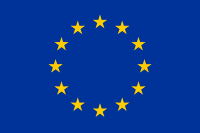#5 Policy Recommendation Area
Design a model for ethical cultural heritage practices
5.1 Identify and address current ethical questions relevant to the heritage sector
Target Stakeholders
![]() Heritage Networks
Heritage Networks
![]() Cultural Heritage Institutions
Cultural Heritage Institutions
Recommendation
The heritage sector needs to place ethical questions in the centre of global conversations, e.g. by creating spaces for exchange and dialogue among concerned professionals. The first step for cultural heritage institutions is to re-define what ethical means in their everyday work, in operations, and with their communities of interest, taking into account new challenges arising in the global context and bringing to the forum new ethical questions.
A cross-sectoral think-tank representing various backgrounds and expertise from inside and outside of CHIs (including other sectors such as education and research, or environment) could address these issues and facilitate the dialogue. The debate on ethical cultural heritage institutions will become more meaningful when leveraged by the creation of a pan-European register of good or current practices related to contemporary ethical challenges in cultural heritage institutions: access to content, the quality and language of metadata and wider annotations, climate sustainability, treatment of sensitive content (traditional, involving children, obtained without consent, etc.), decolonising collections, and links to new technology (bias in AI). The cross-domain expert group and the register could be called to life and maintained by heritage networks already involved in capacity building and high-level discussion steering.




